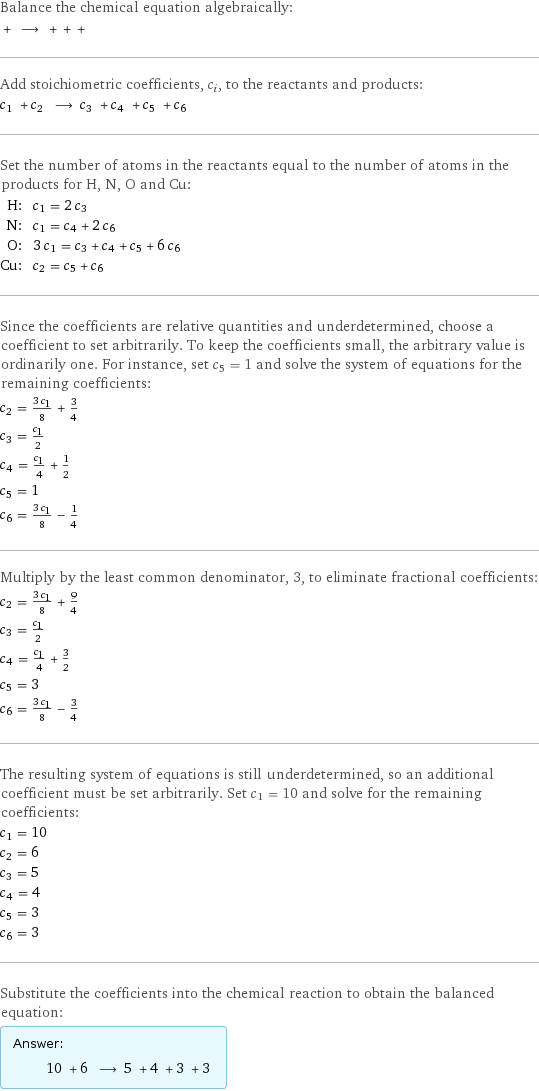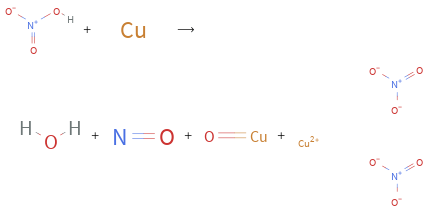Input interpretation

nitric acid + copper ⟶ water + nitric oxide + cupric oxide + copper(II) nitrate
Balanced equation

Balance the chemical equation algebraically: + ⟶ + + + Add stoichiometric coefficients, c_i, to the reactants and products: c_1 + c_2 ⟶ c_3 + c_4 + c_5 + c_6 Set the number of atoms in the reactants equal to the number of atoms in the products for H, N, O and Cu: H: | c_1 = 2 c_3 N: | c_1 = c_4 + 2 c_6 O: | 3 c_1 = c_3 + c_4 + c_5 + 6 c_6 Cu: | c_2 = c_5 + c_6 Since the coefficients are relative quantities and underdetermined, choose a coefficient to set arbitrarily. To keep the coefficients small, the arbitrary value is ordinarily one. For instance, set c_5 = 1 and solve the system of equations for the remaining coefficients: c_2 = (3 c_1)/8 + 3/4 c_3 = c_1/2 c_4 = c_1/4 + 1/2 c_5 = 1 c_6 = (3 c_1)/8 - 1/4 Multiply by the least common denominator, 3, to eliminate fractional coefficients: c_2 = (3 c_1)/8 + 9/4 c_3 = c_1/2 c_4 = c_1/4 + 3/2 c_5 = 3 c_6 = (3 c_1)/8 - 3/4 The resulting system of equations is still underdetermined, so an additional coefficient must be set arbitrarily. Set c_1 = 10 and solve for the remaining coefficients: c_1 = 10 c_2 = 6 c_3 = 5 c_4 = 4 c_5 = 3 c_6 = 3 Substitute the coefficients into the chemical reaction to obtain the balanced equation: Answer: | | 10 + 6 ⟶ 5 + 4 + 3 + 3
Structures

+ ⟶ + + +
Names

nitric acid + copper ⟶ water + nitric oxide + cupric oxide + copper(II) nitrate
Chemical names and formulas

| nitric acid | copper | water | nitric oxide | cupric oxide | copper(II) nitrate Hill formula | HNO_3 | Cu | H_2O | NO | CuO | CuN_2O_6 name | nitric acid | copper | water | nitric oxide | cupric oxide | copper(II) nitrate